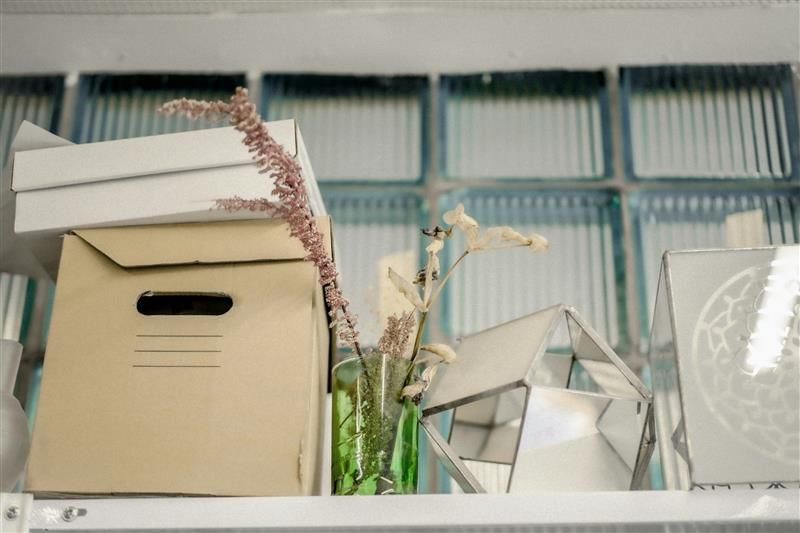
WHY HARD COPY DATA STORAGE IS SO IMPORTANT.
As the horizons of our digital landscape continue to expand further and further every day, electronic and digital means of data storage increasingly seem like the obvious choice for businesses and individuals alike. We all know that both have their benefits and downsides, although we tend to care most about which method is the safest and most efficient. In this post, we aim to detail the many benefits hard copy data storage in the digital age. As you will see, storing physical documents often proves not only safer and more secure than digital storage, but also more convenient and flexible. Let’s get stuck in...
HARD COPIES ARE NEEDED FOR AUTHENTICITY
While switching to paperless storage may have environmental and organisational benefits, sometimes it is simply not an option. For instance, people often need to access and provide hard copies of certain documents for authenticity or identification purposes. In such cases, digital copies may not constitute sufficient proof and physical copies are the only option. Individuals with house deeds, birth certificates, signed contracts, and wills need to guarantee that such documents are in safe keeping and readily accessible. Reproducing them in digital form is certainly recommended, but physical copies are usually essential if they are to be considered valid documentation.Companies with an abundance of documents which require this level of authenticity should always be keeping physical documents, because you never know when you might need undeniable proof of certain terms or transactions. Indeed, some laws and regulations specify that companies should keep physical documents for a certain amount of time. In these cases, our recommendation is that companies commit themselves to secure hard copy data storage. There is simply no other way to guarantee complete authenticity and remain compliant with the relevant legislative requirements.
LONG TERM STORAGE
In many cases, companies or individuals are required to keep certain documents in storage for years or even decades before destroying them or using them. Whether kept for legal purposes or for personal reasons, storing documents in a physical location is often the only way forward. Technology is constantly evolving and digital forms of document storage are not guaranteed to be around for as long as your documents may require – just look at computers 10 years ago!Accessing documents via outdated means can be awkward at best and unsafe at worst. However, with hard copy data storage your documents are simply kept in a secure location to be accessed whenever you see fit – no need for technology or complex databases.
THE SAFETY AND SECURITY OF HARD COPY DATA STORAGE
When you compare the security of hard copy data storage with that of digital copy data storage, physical documents always win. Though neither are easy to access by illegitimate means, electronic documents are more vulnerable due to their existence on computer systems. Malicious data breaches and hacks are unfortunately more common than you might think, especially within bigger companies that store more sensitive information. In such a climate, removing the risk of electronic breaches entirely might just be your best bet.Total protection of confidential information and sensitive documents can never be guaranteed, but storing hard copy documents instead of relying on digital storage certainly comes close. Anyone attempting to steal, alter, delete, or compromise your data in some way would need to be in the same place as the documents themselves to even have a chance.As a consequence, keeping your documents in the safest place possible will greatly reduce the likelihood of theft. Storing your papers in a document storage facility would be one way of ensuring this security, although many opt for safety deposit boxes or simple office storage. Whatever you choose, storing physical documents in a safe location are objectively much harder to access than electronic copies sitting in cloud storage or on your hard drive.
DIGITAL SCANNING CAN RESULT IN FLAWS
There is always going to be room for error when scanning paper documents for digital storage, especially when done at home and not through a professional document scanning service. Important segments of the paper could be omitted or distorted in the scanning process if you are not careful to do it properly. This makes the prospect of converting all your physical copies into digital ones somewhat more risky.Of course, knowing how to safely scan documents will help, but keeping physical copies in a secure place is a much simpler option for those who already have a large backlog of papers lying around. If you do choose to digitise your physical papers, make sure to either take great care in the process or hire a professional to do it for you.
DESTRUCTION IS GUARANTEED AND PERMANENT
When you no longer want an electronic document to exist, permanently deleting it will not do. Even deleted documents remain within hard drives in some form, and even rudimentary hackers have the knowledge and skills necessary to retrieve it. You cannot guarantee total destruction. On the other hand, when you destroy a document with a micro-cut shredder there is absolutely no chance of its remains being found and reconstructed (although as previously covered here, certain types of paper shredding are not secure enough to protect against this risk altogether).By storing physical copies of your documents you are not only ensuring that they are better protected from being compromised during their storage but also after their eventual destruction. Get in touch with our team today to learn more about our various hard copy document storage services.








